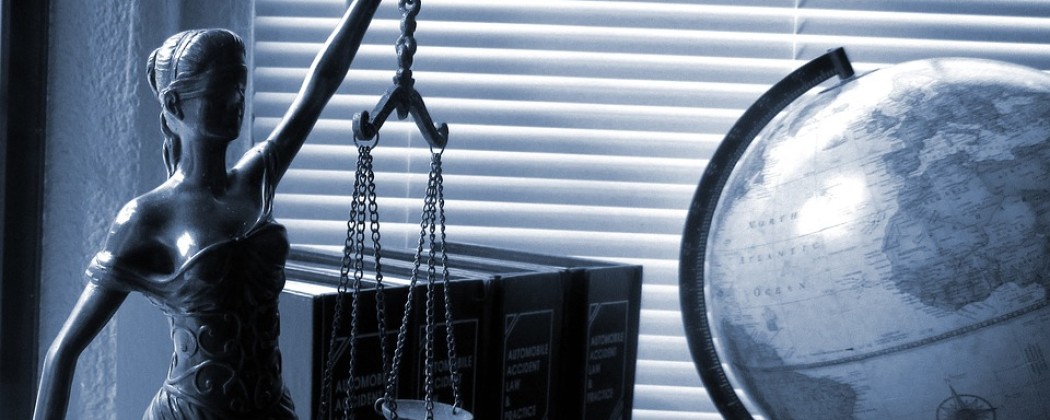This month
- Mutual Legal Assistance Initiative
- Corporate responsibility for core international crimes
- Sustainable Development Goal 16
Mutual Legal Assistance Initiative
Why?
Practitioners and legal experts from countries across five continents have concluded that the current legal framework for mutual legal assistance (MLA) and extradition for the most serious international crimes is incomplete and outdated. This has serious consequences for the ability of States to cooperate effectively in the fight against impunity. That is why Argentina, Belgium, Mongolia, the Netherlands, Senegal, and Slovenia propose to set up a modern multilateral treaty on MLA and extradition which would facilitate better practical cooperation between States investigating and prosecuting these crimes.
Crimes of genocide, crimes against humanity and war crimes are the most serious crimes of international concern and all States are under the obligation to investigate and prosecute them effectively. Paradoxically, no adequate mutual legal assistance legal framework exists to date regarding these crimes.
The adoption of the new treaty will enable all States to be fully efficient in their fight against impunity. Because of the very nature of these most serious international crimes, suspects and witnesses, evidence or assets relating to these crimes are quite often not limited to the territory of one single State. This means that States which have to investigate and prosecute these crimes will have to cooperate practically and judicially in order to be truly effective in the fight against impunity and comply with their international obligations. This is the only way to avoid the creation of safe havens for perpetrators of massatrocities. As a practical tool to enable States to both comply with their international obligations and empower their national judiciaries, it is proposed to set up a modern procedural multilateral treaty on MLA and extradition which would facilitate better practical cooperation between States investigating and prosecuting these crimes.
What?
In this video the MLA-initiative is explained.
Key features
- The MLA is meant as a tool to enhance capacity for investigation and prosecution, at the domestic level, of crimes of genocide, crimes against humanity and war crimes, as well as for all States which could transmit or receive a request for mutual legal assistance in these matters.
- No new concepts but a focus on efficiency.
- The provisions on extradition offer a conventional basis for extradition without derogating to the traditional rules pertaining to the matter. The treaty is based upon existing procedural provisions from more recent treaties on mutual legal assistance.
- The treaty covers the following topics: freezing of assets, seizure and confiscation; protection of witnesses; transfer of criminal proceedings; disposal of confiscated proceeds of crime or property; taking evidence or statements from persons; service of judicial documents; searches and seizures; identification or tracing proceeds of crime, property, instrumentalities or other things for evidentiary purposes; facilitation of the voluntary appearance of persons in the requesting State Party; designation of central authority and channel of communication; videoconference; and assistance to and protection of victims.
- Amnesties: the current draft does not contain any provision pertaining to the possibility of granting amnesties.
- Death penalty: in the current draft the requested State Party may refuse to provide mutual legal assistance unless the requesting State Party gives sufficient guarantees that the death penalty sentence will not be imposed or, if imposed, will not be carried out. Where it concerns an extradition request, the request shall be refused unless the requesting State Party gives sufficient guarantees that the death penalty will not be imposed or, if imposed, will not be carried out.
- So far, 69 states support the initiative. Some 13 NGO’s have put forward their opnions, views and concerns on the proposal.
On 27-29 January 2019 informal consultations took place in The Hague. States supporting the initiative are now being invited to actively participate in the diplomatic conference which will take place in Slovenia from 8-19 June 2020. Non-supporting States will be invited as observers.
For the source of this article clik here.
Corporate responsibility for core international crimes
You may have noticed news on how businesses can contribute and further human rights, while avoiding accountability and reputational risks for involvement or even responsibility for gross human rights violations. Several businesses and businessmen have already been indicted and/or held accountable for violations.
Guidance
Businesses are keen to add value for their customers and, more and more, for our society and its challenges (eg. the environment and human rights). They therefore take care of their reputation, compliance and riskmanagement. They can find guidance in the following instruments:
- Guiding Principles on Business and Human Rights
- The UN Global Compact which aims to mobilize a global movement of sustainable companies and stakeholders that create a better world. It aims to support companies to do business responsibly by aligning their strategies and operations with ten principles on human rights, labour, environment and anti-corruption and to take strategic actions to advance broader societal goals such as the UN Sustainable Developnent Goals (see below), with an emphasis on collaboration and innovation. Corporate sustainability starts with a company’s value system and a principles-based approach to doing business. This means operating in ways that, at a minimum, meet fundamental responsibilities in the areas of human rights, labour, environment and anti-corruption. Responsible businesses enact the same values and principles wherever they have a presence, and know that good practices in one area do not offset harm in another. By incorporating the Ten Principles of the UN Global Compact into strategies, policies and procedures, and establishing a culture of integrity, companies are not only upholding their basic responsibilities to people and planet, but also setting the stage for long-term success.
The Ten Principles of the United Nations Global Compact
- businesses should support and respect the protection of internationally proclaimed human rights; and
- make sure that they are not complicit in human rights abuses.
- businesses should uphold the freedom of association and the effective recognition of the right to collective bargaining;
- the elimination of all forms of forced and compulsory labour;
- the effective abolition of child labour; and
- the elimination of discrimination in respect of employment and occupation.
- businesses should support a precautionary approach to environmental challenges;
- undertake initiatives to promote greater environmental responsibility; and
- encourage the development and diffusion of environmentally friendly technologies.
- businesses should work against corruption in all its forms, including extortion and bribery.
Accountability
Accountability for businesses may, amongst others, arise from any of the following circumstances:
- Direct participation/commission of a crime or ommission to act upon awareness of a crime (or the preparation)
- As supplier of goods or services that are used to violate human rights
- As provider of information or services that fuels already existing violations
- By investing or doing business in states with a poor human rights record
- By not acting in compliance with UN resolutions and/or sanction lists
What businesses can do
- First and foremost: they should set ethical/health/safety standards, asure compliance with international standards within the company and its supply chain, commit themselves to proper due diligance research in case of investments, and should by default be committed not to do harm, being honest and offer transparancy over their operations and standards.
- Prioritizing Human Rights and compliance in the business strategy.
- Reputation management.
- Risk assessments.
Read more:
Sustainable Development Goal 16
The Sustainable Development Goals (SDGs), also known as the Global Goals, were adopted by all United Nations Member States in 2015 as a universal call to action to end poverty, protect the planet and ensure that all people enjoy peace and prosperity by 2030. SDG 16 aims to “promote peaceful and inclusive societies for sustainable development, provide access to justice for all and build effective, accountable and inclusive institutions at all levels”.
Peace, security and Justice are cornerstones for sustainable development. That’s why SDG 16 concentrates on:
- Fighting violence, abuse, exploitation, corruption, fraud and injustice
- Access to justice
- Safeguarding fundamental rights and freedoms
- Capacity building: (inter)national efforts to enhance legal processes and cooperation and the strenghtening of institutions
- Further transparancy
What can be done?
With the international support for the agenda and its Global Goals, governments and civil society organisations may consider where their respective opportunnities lay to contribute. These opportunnities may well be prioritzed and find virtal ground as investment funds, governments and others provide seed money and funding for programmes, projects and initiatives that contribute to the SDG’s. It has been noticed that these organisations are eager to engage in activities under SDG 16 in particular.
Read more.




